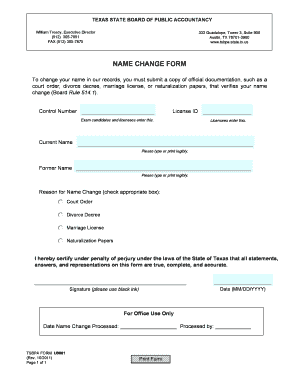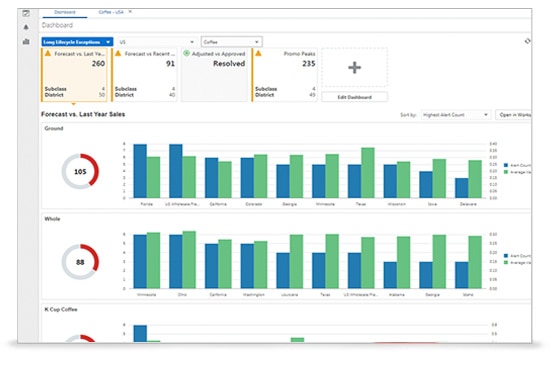
After this review, if you are approved, you will sign a factoring agreement and begin the factoring process. The factoring agreement should outline any fees, details of the payment plan, and the initial maximum dollar amount that will be given to you. That amount would be the maximum factored amount outstanding at any time. It is important to read all terms and documents carefully during this part of the process.
- At Fundbox, we don’t want to interfere with your customer relationships, so we communicate directly with you.
- Get our latest news and information on business finance, management and growth.
- More often than not, asking for money can be unpleasant or awkward but having a third party take over can relieve this pressure.
- In order to use invoice financing, you have to apply with a lender and get approval to borrow against certain invoices.
This situation can become almost as perilous as if the company’s entire business is unprofitable. Non-recourse factoring is a type of invoice factoring where bad debts are not charged back to you by the factoring company. Once your clients have been vetted and your financing has been approved, you can start receiving advances on your unpaid invoices almost immediately. Nevertheless, if a client doesn’t pay an invoice, either you or the factoring company takes responsibility for the outstanding payment. Credit insurance will only pay out your unpaid invoices if the debtor cannot pay due to insolvency. It’s more of a guarantee against customer risk than a financing route.
Customers
At TCI Business Capital, we offer month-to-month contracts and 12 month contracts depending on the situation. Be sure to ask your potential factoring company questions and read through the contract thoroughly prior to signing. Cash flow and liquidity can be an issue for many recruitment agencies. Invoice factoring lenders can advance recruitment agencies with the money they need to bankroll their contractors in a timely fashion.
- When it comes to business funding, three considerations are crucial — speed, cost and flexibility.
- Bankrate.com is an independent, advertising-supported publisher and comparison service.
- Invoice factoring is a general category that classifies various types of accounts receivable financing under one umbrella.
- The concept of invoice factoring can be traced back to ancient Mesopotamia, where merchants would use a form of factoring to finance their trade activities.
- Another consideration, which could drive up the factoring cost, is whether the company opts for a non-recourse agreement, where the factoring company assumes the risk of customer nonpayment.
This can be particularly helpful for businesses that don’t have dedicated accounting or collections departments. Invoice factoring is important because it offers fast funding for businesses that qualify. A factoring company’s fees vary based on items such as volume, the size of your invoices, your industry, customer pay trends, and other variables. Some factoring companies charge a flat fee for the service, whereas others may have a factoring fee and additional charges for other administrative and support services they provide.
Monthly minimum volume fee
If the Importer doesn’t pay the full invoice amount, liability for the invoice payment depends on the type of invoice finance requested. In non-recourse financing, the finance company assumes liability for the loss, whereas, in recourse financing, the Exporter would be responsible for chasing the Importer for payment. Invoice factoring helps relieve payroll pain, giving you capital to meet weekly, bi-weekly, or monthly payroll.

Each factoring company has its unique formula for determining a client business’s factoring fee, but all factoring companies use similar essential criteria to calculate the rate. Payroll funding can refer to other funding solutions, such as ABL financing, but usually refers to a specific invoice factoring solution tailored to the staffing industry. Its purpose is to ensure staffing companies have dependable cash flow to support the regular burden of meeting payroll. Learn what invoice factoring is, how it works, and how to qualify for this type of financing.
If you decide you need cash faster than the client typically pays you, you can apply with a factoring company. Invoice factoring is a financing solution where a business sells its open receivables to a factoring company in exchange for immediate cash. A steady cash flow is essential for the survival of any small business and invoice factoring provides companies with the cash injections they need. Invoice factoring also takes over the credit collection process, which gives small businesses more time to focus on other things like growing the company. It’s a method of financing that entails the sale of outstanding invoices, at a discount, to a factoring company in exchange for instant access to cash. This stipulation can be very difficult for some small businesses where a large proportion of their outstanding invoices are due to one or two customers.
While invoice factoring arguably checks the box of speed, it may not be best in terms of cost and flexibility. Unlike loans, there is no obligation to make a certain amount of repayment by a certain date. With revenue-based financing, you never have to worry about the situation where debt commitments drag your company down and hinder growth.
Products
It allows small businesses to unlock the cash value of their invoices long before their customers pay their bills. Both are mechanisms that growing businesses may use to generate cash. In invoicing factoring, the invoice is sold to a factoring company, which also assumes responsibility for collection. In invoice financing, the invoice serves as collateral for either a term or a revolving loan from a financial company.

If you’re approved, you can draw funds and expect them to arrive as soon as one business day. Finally, the last big consideration that might affect your decision is industry familiarity. You will probably want to choose a factor based on the industry it specializes in financing. For example, if you own a construction company, you will want to find a factoring company that is familiar with dealing with construction clients and trusted by other companies in your industry. There are many components factoring companies look at within your company and invoices when determining the eligibility of your business.
Other invoice factoring fees
Let’s review some important pros and cons when it comes to invoice factoring. Our partners cannot pay us to guarantee favorable reviews of their products or services. Invoice factoring is just another option in the arsenal of working capital levers businesses have at their disposal.
A single invoice also means that it may potentially not be a lot of money and would make the factor consider you a lower value customer. If that’s the case, be prepared for higher fees, and stricter agreement terms. As you begin to shop for factoring companies and compare their rates, we suggest that you request each company provide information about all fees that they require.
You’ll need to ensure that the factoring company you choose is ethical, fair, and respectful. Triumph Business Capital is a proud member of the International Factoring Association (IFA), and strictly adheres to the IFA’s code of ethics. Invoice factoring works via a relationship between the invoice factoring company and the client. On the other hand, invoice financing works like a traditional loan via a relationship between the lender and the business creating the invoice.
How do companies qualify for invoice factoring?
This means the rest of the money, minus the factoring fee, is sent to you once the customer pays the invoice. Some factors charge application and due diligence fees and some do not. Those that do What is invoice factoring not may recover this upfront expense by increasing the initial invoice factoring fees. This fee varies highly from companies to companies and can cost anywhere from zero to thousands of dollars.
While those small businesses may fall in a wide range of industries, from construction to beauty salons, they all share one thing in common — all require a steady flow of working capital. A common challenge many small businesses face is the delay between when invoices are paid and when new inventory needs to be purchased. While the client business receives immediate payment for an invoice, the factoring company is responsible for managing invoice payment processing and collection. In exchange for fast payment and being relieved of collection responsibilities, the client business gives up a small percentage of the invoice amount as the factoring fee. Invoice factoring has been used to finance commerce for thousands of years.
eCapital Recognized Among U.S Fastest-Growing Private … – ABL Advisor
eCapital Recognized Among U.S Fastest-Growing Private ….
Posted: Wed, 16 Aug 2023 11:32:46 GMT [source]
Cash-strapped companies have little choice but to make short-term decisions that may cut off or limit long-term opportunities. This last point is worth highlighting, because when you factor an invoice, you effectively sell that invoice to the factoring company and give up any right to collect payment yourself. Even though you can’t ensure the collection of the invoice, the interest you pay is based on how long it takes your client to pay the invoice. However, when you use invoice financing, your business is still responsible for collecting on the invoice. Once you do, you use the payment to pay back your loan, plus interest and fees.
Instead of offering a term loan, which is a lump sum, factors essentially “buy” invoices from your business. When you decide to “factor” an invoice, you are selling the unpaid invoice to the factoring company and they send you a fraction of the total invoice value. This means you receive a percentage of the invoice amount owed and the factoring company takes the rest as their fee for advancing and collecting the funds. The factor only sends you a fraction of the invoice value up front because they are taking on risk by factoring your invoices—they still must collect from your customer. You may have heard of invoice factoring or invoice discounting, but with both you access funds from an unpaid invoice.
Find out more about alternative small business financing options and factoring vs. bank loans. Greater security – Banks are more secure and provide a sense of financial stability for the business. A business’s clients are very valuable relationships and a bank offers a level of comfort not found in independent alternative financing companies like BlueVine or Fundbox. Clients feel better about interacting with a bank than an unfamiliar or unknown business entity. Most companies need to be profitable to stay in business — i.e., their revenues must exceed their expenses. If a company has customers with extended payment terms it can make it difficult for them to meet their financial obligations.
The factor buys the invoice outright, and assumes the risk of non-payment. The factor pays you an amount equivalent to what the invoices are worth, minus a percentage. The benefit is that you get paid sooner, giving you working capital to pay your bills. The drawback is that it reduces how much you ultimately get paid by your client. This is sometimes called “receivable financing” since you’re trading your accounts receivable for cash. If an invoice is left unpaid by a customer for a certain number of days (the agreed ‘Approval Period’), it won’t be funded by the factoring company.
Related posts
Operating vs Non-Operating Revenue
Bookkeeping : 04.08.2023 : 0 ComentariiSeparating non-operating from operating income provides stakeholders and users of financial statements with a clear image and better knowledge on […]
What is virtual bookkeeping?
Bookkeeping : 28.06.2023 : 0 ComentariiContent Why QuickBooks What is BPO (Business Process Outsourcing)? What is the difference between Accounting and Bookkeeping? Create a free […]
Direct Material Quantity Variance Formula and Calculation
Bookkeeping : 18.05.2023 : 0 ComentariiWith either of these formulas, the actual quantity used refers to the actual amount of materials used at the actual […]
Accounting Today Names Councilor, Buchanan & Mitchell a Leading Accounting Firm in the Capital Region for the Third Consecutive Year Councilor, Buchanan & Mitchell CBM
Bookkeeping : 28.03.2023 : 0 ComentariiContent Develop the essential skills that top-tier accounting firms require. Consumer Technology Overview Majority of U.S. Consumers Use Apps for […]